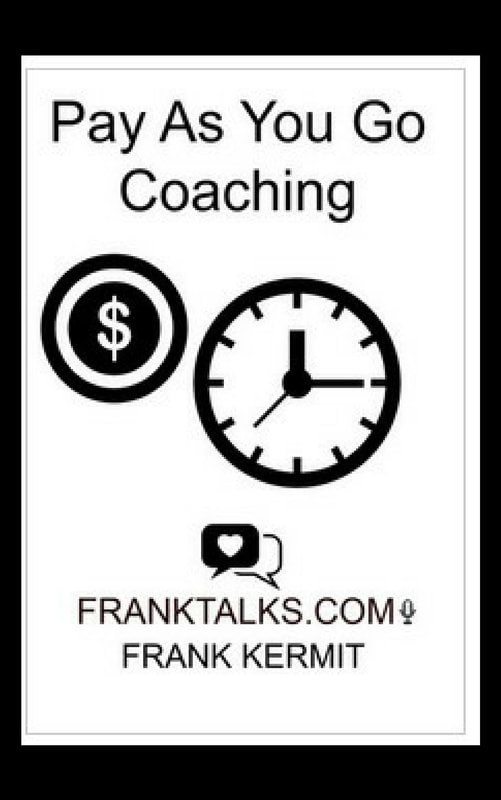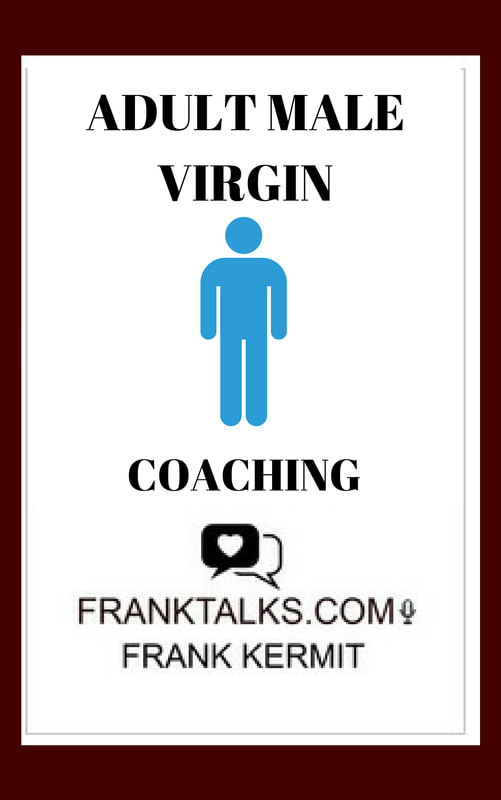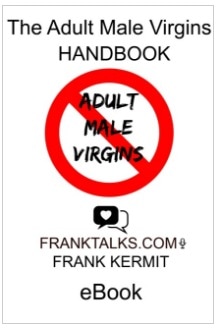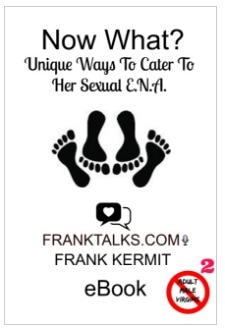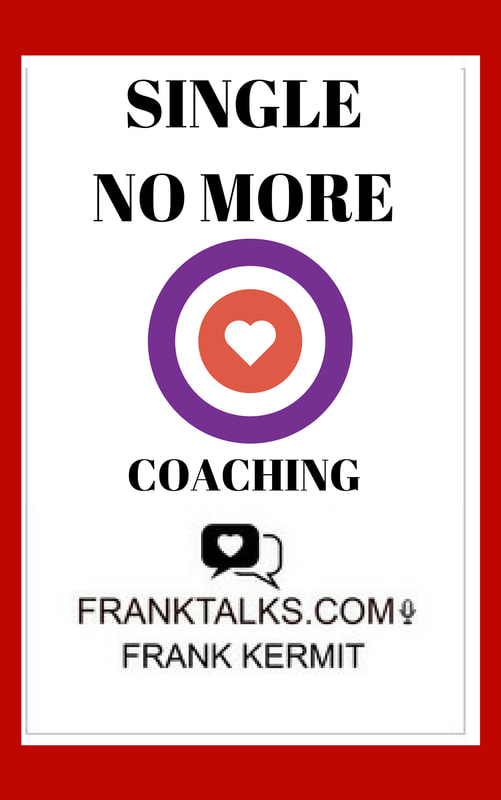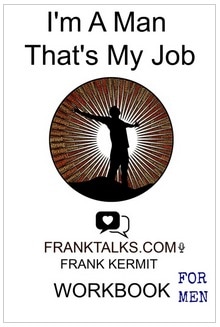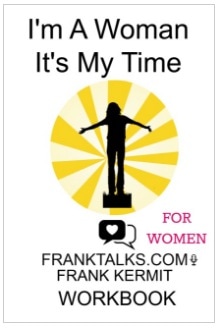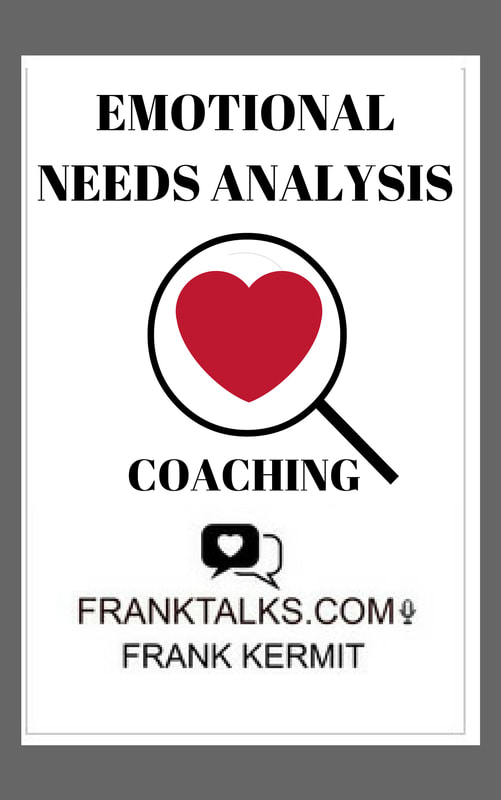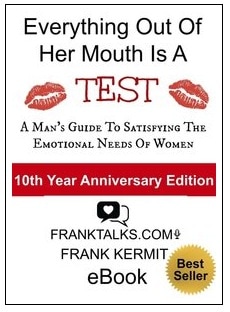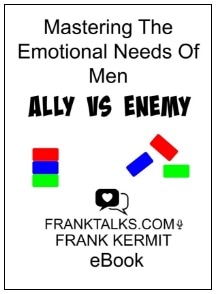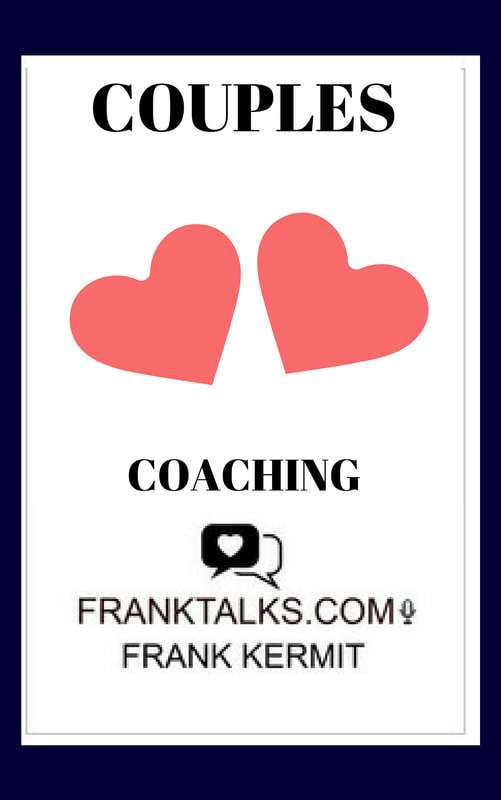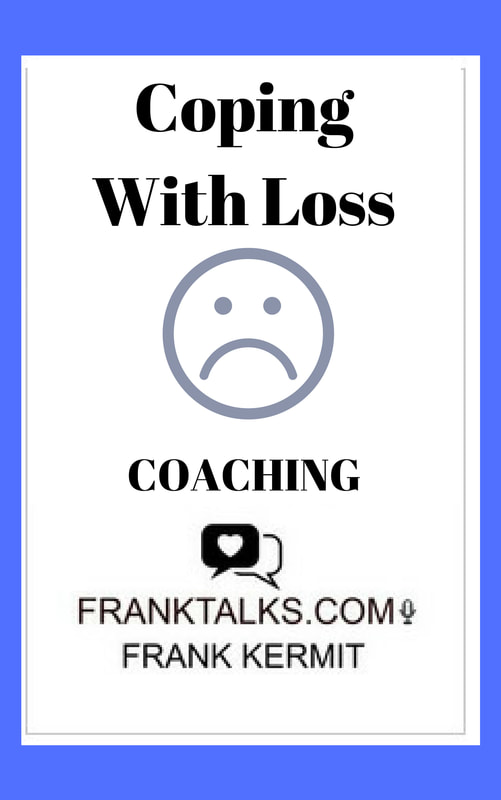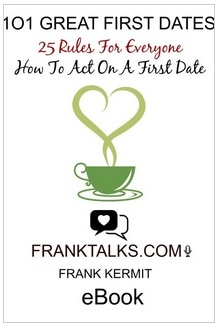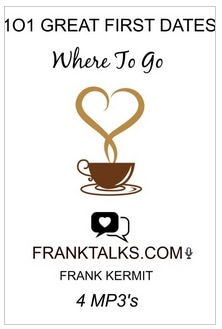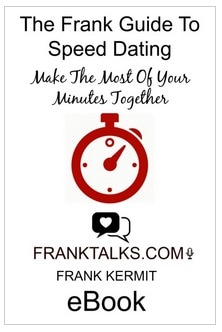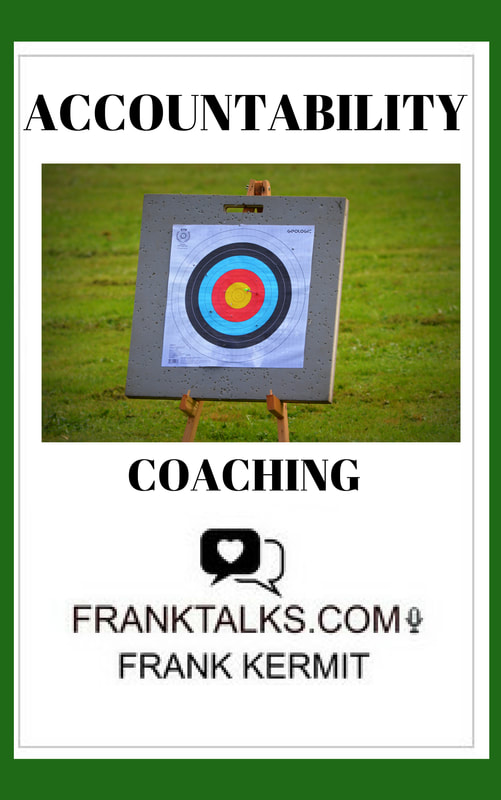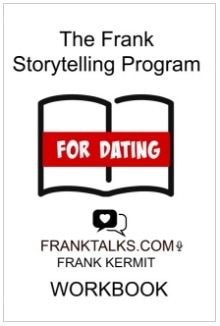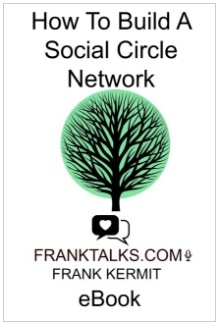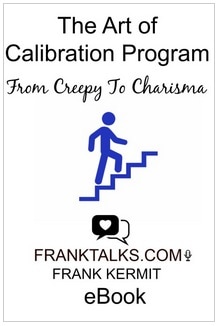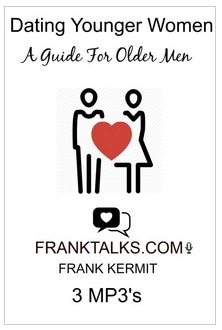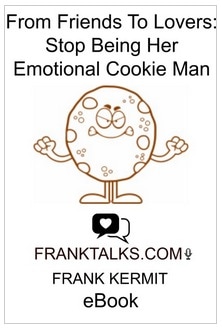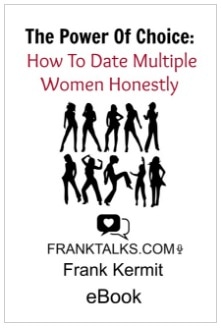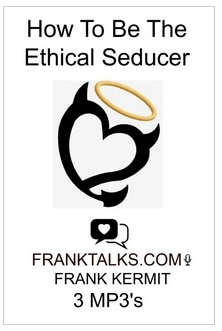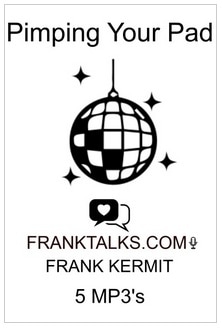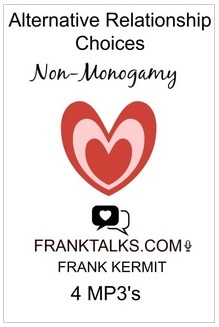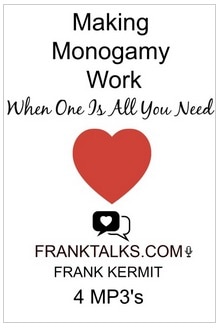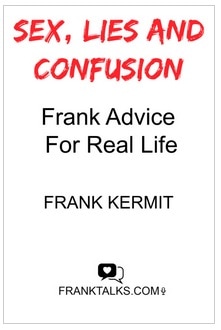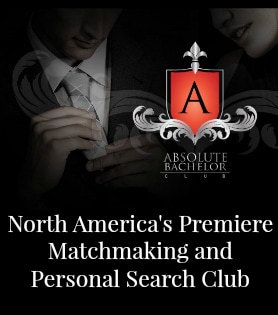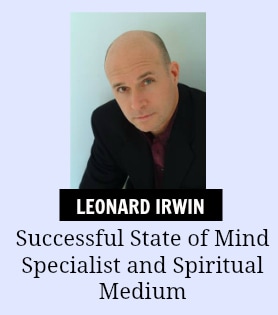|
What To Do When You Like Someone By Frank Kermit It happened. Despite your efforts to stay alone and uncomplicated, it happened. When you were not looking for it, you actually started to like someone. You actually found someone that you like. Now what? When you like someone, the big question is always what do you do?
Calibration is called for when you like someone and want to see about taking your interest a step further to see if the two of you can connect. As I discuss in my THE ART OF CALIBRATION PROGRAM: FROM CREEPY TO CHARISMA EBOOK, There are a number of factors to consider such as:
There are TWO QUESTIONS to ask: 1. First question to ask is if there are any consequences of dating, or just asking out, this person 2. The second question to ask is if you are willing to accept those potential consequences. If you can get a yes to that second question, then here are some tips. When To Go DIRECT and When to be INDIRECT Telling someone directly and right away works if the person you like already likes you back or is open-minded enough to give you a chance. If you do not know if that person likes you, you may want to take a more subtle approach. The rule to follow is the longer you have known each other, the more indirect you should be. If you just met the person, telling that person you like him or her enough to want to get to know them better is non-threatening and can actually be a welcome invitation. There is no friendship to risk.
In those cases, it is just best to isolate that friend to a one-on-one activity and see about making a romantic move. Better to try to hold a hand, or lean in for a good night kiss to sexualize the context of the dynamic. If you get rejected, well at least you know and you tried. Should You Ask Other Friends To Help You? Involving your friends from your social circles has its pros and cons. Usually, it is a bad idea, unless you have a solid friendship with someone that is socially clued in. In the case of having a good friend that is a mutual friend of the target of your heart’s affection, you can enlist that person’s help by asking them to help you set a time for you all to meet and that friend can politely excuse him or her self from the activity. A friend may also be able to give you information about whether or not that person is emotionally available. Again, make sure you are dealing with a solid friend and not someone that will inform you incorrectly. A friend that can actually work like a matchmaker may be in your best interest if that friend knows where the two of you are compatible. With all that said, being very direct does have advantages. You need not involve anyone else into your private love life and good or bad, you get an answer much quicker about where you stand. Either way, the best thing you can do when you find you like someone is: to take some kind of action listed above. People tend to regret the things that they did not do, more so than the things that they did do. Frank Kermit P.S. Do you Agree With This Article? Disagree? Have something to Add? Write your thoughts in the comments below and share this article to see how many of your friends think like you.
0 Comments
People Pleasers Are Problem Daters By Frank Kermit At the heart of every great people pleaser is the best of intentions of wanting to be liked by the other person. And that is why people pleasers, as nice as they are, are never fully trusted by the target of their affections. When someone wants to please a person, that is OK, provided that the person feels the attention is earned. The problem is that a people pleaser is too nice by nature. People pleasers see themselves as being appropriate, while their dates feel a vibe of insincerity. In the minds of potential partners, no one is that nice, unless there have ulterior motives. In fact, that is the paradox of the people pleaser. They do not want the other person's money, resources, or even material possessions. All they want is to be liked Because people pleasers want to be liked so badly, they allow themselves to be disrespected. One of the principles I teach in my coaching workbooks for men and women, "I'm A Man, That's My Job" and "I'm a Woman, It's My Time" respectively is that to make any relationship work is that it MUST be more important to the person to want to be respected by your potential partner, instead of being liked. If all you know how to do is to be liked, you will get ATTENTION, but you will struggle to find any long lasting and legitimate intimacy. No one loves a person that does not have his or her respect as well. People will like a people pleaser, but people will never fully respect nor trust a people pleaser. Without respect and trust, there can be no love. There can be like, even lust in some cases, but never a love that leads to commitment. At the heart of a people pleaser, is fear:
That is why people pleasers lack boundaries. Without proper boundaries, a people pleaser does not have to deal with any of that unpleasantness nor do they have to act in ways in which they might self identify with their own abusers who were mean or insulting to the pleaser. Unfortunately, that repeating behavior pattern can only lead to attracting and being attracted to people that would continually take advantage of the people pleaser. A Possible Source of People Pleasing The skill of people pleasing can, but not always, be sourced to emotionally abusive upbringings. Depending on the severity of the mental and emotional abuse, the people pleaser skill set is likely what allowed a number of children to survive unhealthy family environment where unpredictable adult temperament behaviors ran rampant. A child learns to be a people pleaser in order to appease and maintain the peace with emotionally unhealthy adults. When that child grows up, they take those behavior patterns; they now associate to attachment, and get stuck in emotionally unhealthy relationships. When a people pleaser is actually with someone that appreciate them without the unreasonable expectation of having to be pleased every step of the way, a people pleaser will often not be able to recognize that as an emotionally healthy dynamic and will often find themselves feeling empty. The Pros of Being a People Pleaser There are good qualities to being a people pleaser. Being a people pleaser is a great quality in the correct context. On the job, the characteristics of a great people pleaser make for excellent customer care service. Some of the most independent self-employed workers are amazing people pleasers. So are people who excel at being support staff. People Pleasers And Love Life But in romantic relationships, being a people pleaser will only net you the kinds of partners who are too insecure to manage a partner who understands how to prioritize the needs of the relationship, the needs of the partner and the needs of the people pleaser. There is a difference between:
A giving person gives what they can without giving up so much, that they themselves end up sacrificing their own needs. For example, a student has an exam to study for the next day, and gets a call from her boyfriend to come over because he is feeling a little lonely. The giving person weighs the options of her own need to study, and her desire to keep her boyfriend happy. In the event that the boyfriends' request is not dire (they can see each other after her exam) and her own need for study is very important, a giving person would put her own needs in priority. It does not take away from her being a giving person; it just means she can acknowledge what is more important at the moment. A people pleaser however, would want the approval of her boyfriend so badly, that she would jeopardize her exam, just because she wants to keep her boyfriend from being slightly upset. See the difference? Why does it not work in relationships? Let's say you are on a date, and your date asks you a common date question, such as:
A people pleaser will ONLY give the answers that they think the other person WANTS to hear but not the answer they would actually want to give. This leads to unrealistic expectations on both parts. The people pleaser expects that EVERYONE behaves like a people pleaser, and thus does not factor in how misleading they are actually being on a first date. The potential partner, who is unaware of the people pleasing behavior pattern, takes what is being communicated at face value...only to discover at a later time, the person they are dating is not what they thought. It does not stop there. People pleaser will please others to the point of feeling anger and resentment for doing things they initially agreed to do, because they feel they cannot say no. Eventually, the pleasers...EXPLODE! Partners get the brunt of the explosion, and end up feeling resentful too, because they are not mind readers. And rightly so, however part of being a surviving people pleaser is the anticipation of the dysfunctional emotional cues of the adults they grew up with. The biggest mistake that people pleasers make is the assumption that everyone had to survive childhood acting a like a people pleaser. Don't Be a Sheep! To simplify why people pleasers do not generate trust in relationships, here is a symbolic analogy: people pleasers are just like sheep. You can trust a Shepherd to be a good Shepherd as long as there is a value for value relationship going on (respect). You can trust a wolf to be a wolf, because you can acknowledge the good and bad in a wolf, and the wolf never tries to be anything other than a wolf (trust). But you can never trust a sheep. So the next time you are on a date, and you end up in a situation where you need to communicate and or enforce a boundary, and you have a choice to make: Speak your mind and do not be a sheep This is a guest post. Part I I am 43 years old, married to a great man, have a really good job at a medical company and I have three beautiful daughters aged 8, 11 and 15. I grew up in the suburbs, was a good girl and went to a top school and graduated with a great education. So why would I be a pole dancer? I mean isn’t that like a stripper? The answer is simple but still complex; yes it is and no it’s not. Let me start at the beginning. I decided to go to a class because I really like dancing and I was a stay at home mom who felt like the walls were closing in on me. I couldn’t really find a dance class that seemed right for me and I signed up for a six week session thinking it was a very limited commitment. I was very nervous and told no one what I was doing. It was a small class and we worked on building strength in our arms, so let me tell you we women do not work on this! Holding myself up for 5 seconds was an impossible task and I could never imagine doing a whole song. After that we would work on a trick or a move and I loved it. It was gymnastics for adults with dance moves to tie it all together. It was so much fun. We women would go, laugh at ourselves because the attempts to get these moves can be pretty hilarious and we would get some exercise. Let me say a word about the exercise part. I never, ever felt like I was working out. I was going to class just to have fun but suddenly my body transformed. I built beautiful shoulders, muscled back and arms and eventually even started getting some pretty decent abs. That’s how it started, my little class where I laughed and got fit and danced. I loved it, but it’s pole dancing…. Telling people you are a pole dancer is very interesting. There’s a very definite reaction. It’s not like telling someone you teach yoga. They try to be cool and supportive and you get a lot of people saying ‘cool … umm that looks hard’. This is usually where I respond ‘it is!’ and start telling people how hard it is and the core strength one needs and how hard we all train. I want to say for the record pole fitness/dancing is as much a sport and fitness endeavor as anything out there. We all cross train and work extremely hard to master the moves and tricks. At the end of the day, this is gymnastics. We suffer broken bones, concussions and bruises, Oh the bruises! The horrified looks you get when people see the bruises when you’re training for a competition are amazing. The next time you see a woman wearing long sleeves and pants in the middle of summer she may just be a pole dancer. Pole dancers work on muscle building, coordination, flexibility and balance. A lot goes into these routines. There’s performance, musicality, costume and creative concept as well as defying gravity with strength and skill. We also have to make it look easy. No judge wants to see you gasping for breath at the end of your routine. So why would you not think this is a sport? The Canadian Pole Fitness Association (CPFA) holds regular competitions that have required elements for every level. There are strict guidelines about costume and what can and can’t be done. The women and men that compete are athletes plain and simple. Several pole organizations are making great strides in getting the IOC to recognize pole as an Olympic sport. There’s always one thing that hangs over our heads though…it’s a pole. Strippers use them. The routines can be sexy and typically there are barely any clothes worn. Let me set the record straight pole requires skin contact on the pole to hold yourself, otherwise you slip. If you plan to take your hands off the pole then the clothes will become smaller. There’s no difference than wearing a bathing suit or a gymnastic leotard. Sexy is a much harder thing to address. In the beginning I would always say that dancing and expressing yourself in that way leads to body movement than can beautiful and sexy. Almost all dances have that element built into it, and pole dance is no different. Does a person dancing the tango or the rumba carry the stigma of a pole dancer? I still believe this wholeheartedly but I hate that when I say that I sound like I am trying to distance myself from women who dance in an erotic manner and even those who take off their clothes. You can certainly be a pole dancer and really not at all relate to that world, but for all of us who so strip or are simply dipping our toe in it, then ‘HELL yes! Go for it girl!’ There’s nothing wrong with that but just because you pole dance it does not automatically mean you’re a stripper. But for me the question is ‘what so wrong with stripping anyway?’
Making Monogamy Work: Monogamy Must Be Earned By Frank Kermit *This is an excerpt of my Ebook: FRANKTALKS VOLUME 3: MONOGAMY AND NON-MONOGAMY EDITION EBOOK Monogamy can be easier than open relationships, because the rules are simpler but the application of the rules of monogamy is not as easy. Monogamy works for monogamous people however: the power of choice and the self entitlement of our current societal structure is making it more challenging for the chances that monogamous people have, of making their relationship structure work for them. The Rules of Monogamy: 1-The first rule of monogamy is that you only have sex with one other person. The first rule of monogamy is very much what most people understand monogamy to mean. It is simple to understand. Most people assume it stops there, but it does not. The second rule, is even more important, and challenging, than the first rule. 2-The second rule of monogamy is that you never do anything that would even just potentially threaten rule #1. And in those two rules chaos ensues for the wannabe monogamous couple that is not sure what a real threat to their monogamy is. The chaos comes from not being sure what a potential threat is. Now an obvious threat: someone is sexually interested in being with the person that you are monogamous with, or someone is sexually interested in being with you when you are in a monogamous relationship. That is a threat. What about a potential threat? Potential threat means you do not put yourself in a situation where the likelihood of temptation already exists. The bottom line, when you are in a monogamous relationship, any time that you are out for social reasons and extra-curricular reasons with people that you are attracted to, who have already expressed a sexual interest in you, it is a potential threat to your relationship. At the very least, it is a potential threat to your monogamy. As monogamists, you must figure out how you define a potential threat. Threats to the monogamy will not always be so obvious. Some couples may feel that using sex toys as “marital aids” help aid a challenge in the marriage while other couples may view using sex toys as a threat to their relationship. It is up to the couple to work things out, communicate and deal with their individual insecurities. BTW, you can learn more about using Sex Toys with a new lover in my Ebook NOW WHAT? UNIQUE WAYS TO CATER TO HER SEXUAL E.N.A. EBOOK There are going to be times when your partner is going to come up to you and say, "Listen, I do not want you hanging out with so-and-so anymore." Their reason is, "That person threatens our monogamy." They might not word it that way, but that is essentially what they are getting to. If you believe in the principle of monogamy, you have to listen to your partner's concern, and hopefully you can come to some sort of consensus as to what the best action is to take. I cannot tell you to completely eliminate all potential threats, because at that point, neither of you will be socializing with anybody. If you are not interacting with anyone, then that cannot be emotionally healthy either. As I teach it, you do not kill what you are trying to protect. Just as you must have realistic expectations of the relationships structure you get into, you must you have realistic perspectives on the potential threats to your monogamy. When it comes to potential threats to your monogamy, you must never be afraid to express to your partner that you see a potential threat to the monogamy of your relationship. Never be afraid to say, "That person that you are hanging out with wants to have sex with you." As monogamists, you must be ever so aware of the potential threats to your monogamy. Yes, you are going to be accused of being jealous, and yes, you are going to accused of being insecure, and yes, you might even be accused of not trusting your partner. So what? I personally feel that I would rather be accused of all those things and do what is necessary to project the monogamy of my relationship, when our intent is to be monogamous. I personally feel that a monogamist person has every right to do what it takes to protect the monogamy of their relationships. To what degree you see a potential threat is up to you. Keep in mind that no one is going to care about the importance of your monogamy in your relationship as much as you and (hopefully) your partner do. Monogamy is a work in progress, it is not a given, and can not be taken for granted One of my principles of monogamy is that Monogamy Must Be Earned. Part of the reason that monogamy must be earned is that you want to make sure you know what you want, and that you are sure that the person you are choosing is capable of giving it to you. A very big point here is that monogamy is a lifestyle. As I teach it in my 4 hours audio program lecture, MAKING MONOGAMY WORK - WHEN ONE IS ALL YOU NEED AUDIO you do not make the mistake of thinking that monogamy is just a relationship structure; think of it as a lifestyle because it permeates a lot of the decisions that you are going to make. Being monogamous means that you might even make a change in the type of profession that you choose. For example, one of the reasons that some people become unfaithful, even thought they entered a monogamous relationship with the best of intentions, but down the road they become unfaithful, is because one of the people in the monogamous relationships, or both of them, are in professions where they are working anywhere form 12 to 14 hours a day apart from each other. They just do not have the time to spend together. Over the course of year-after-year, feeling alone, being pursued, maybe feeling angry or resentful for having to work so hard to support your partner which could lead to an unhelpful sense of entitlement to having earned the little extras and then being faced with temptation can lead an originally well intentioned individual to justify getting something from an affair that they feel is no longer there for them at home. Both men and women are susceptible to going though this. It is not gender specific. If monogamy is very important to you, consider it a lifestyle that you have to support. That might mean choosing a different profession, maybe making less money, or making money is a different way so that your lifestyle does not threaten your monogamy. Frank Kermit Learn about The Hierarchy of Dating and Relationships (and how to Transition to Monogamy as a Couple) in the Coaching Workbooks: I'm A Man, That's My Job and I'm A Woman, It's My Time If you have any questions about managing the monogamy of your relationship sign up for a couples session. Profile of A Drag King by Nat King Pole A Drag King. Wow where do I start? I'm a 55 year old lesbian and I've seen a lot of our history. Short version, everybody knows what a Drag Queen is so simply put, a Drag King is the opposite, a woman that dresses like a man for the purposes of putting on a show. But drag kinging is way more multi layered than that. When I was first coming out in the 80's lesbians were starting to slowly come out of the closet more and more and I remember most of us having short hair and a certain look that made it easy for us to recognize one another. As we started to fight for our equal rights, something changed. I'd hear lesbians saying that we'd never get anywhere if we didn't try to fit in more and look more "straight". As the desire for equal rights grew so did the sightings of what was then called "lipstick lesbians"which were women that looked more traditionally "feminine". That brought on a certain disdain for women like me, Butches. Butches were not good for the cause and it made "other" lesbians look bad, as we tried too hard to prove to the heterosexual community that we were "just like them." Now that pretty much everyone has evolved in the straight community as well as the gay one, we are now ready for Drag Kings. We are more relaxed and ready to just enjoy the differences and similarities in our sexualities. I am no longer a threat. Personally I've always just felt like I was very much a woman, with some masculine traits. I think we all have a bit of both. It's a ladder and some are higher up on the ladder than others. Drag Kinging for me is strictly a performance deal but for others it was a stepping stone to transitioning. Also we are not all gay even though many of us are. In the beginning i thought my performance would appeal strictly to lesbians but as I embark on my 15th year of performing I've noticed that I've been attracting more and more heterosexuals to my shows. My persona is an uneducated sexist know-it-all with a huge ego. Both sexes feel like I'm on their side in the battle of the sexes and they're both right. I get the bad stuff men put women through, but being a lesbian I also understand how women can be in a relationship and what guys go through. Dating A Drag King There are many kinds of kings and we are attracted to many types of people. Like I said, some that I know are straight and some date women or trans gender people. Personally for me, the more feminine the better. I'm a sucker for the burlesque women and luckily our paths cross often. I think it's easier to date someone in the artistic milieu since they understand how things work and don't get upset if you spend a lot of time performing and practicing. For performers no matter the type of performance, it's the air we breath. Also if you're the jealous type, don't even think about it because there will be pictures of me everywhere with my face in someone's cleavage. You'll have to trust that I am a faithful partner and that it's just all showbiz and image. At the moment i'm single so... Well it's been nice talking to you, if you have any questions, write here in the comments below or find me through my website below! Hope you learned something and will go out and enjoy a King Show sometime Nat king Pole is Montreal's busiest drag King and has been for 15 years. As well as performing regularly In his hometown he's been making ladies swoon in Toronto, Quebec city, Ottawa and in Philadelphia, Boston, Provincetown Etc. He sings Live, writes his own parodies, dances and is just plain sexy. They call him the panty whisperer. His website is: http://natkingpole.com/ Below is a music video of Nat King Pole's work Below is an interview that both Frank Kermit and Nat King Pole participated in: Advice for Musicians, Singer/Songwriters and Composers
By Mike Rien In my opinion, music is pure emotion. An extension of oneself. Although, having talent is only part of it. It's an on going process, and you have to contually be open to improving upon your skills. Once you have that down it becomes fun. You want to be able to express yourself without any limitations. Be adaptable, such as in life. For example, if you like a certain piece of music whether it is classical, jazz, rock, pop, R&B, electronic, dance, folk and so forth, you have to analyze how it was created and discover how and why it touches you emotionally, in order to re create it, which helps you when you create your own masterpieces. This takes time, love and devotion to the craft, patience, discipline, follow through and then having the courage to be your own voice by performing and recording it. After all, you want that sense of freedom and joy, it's like being on vacation. When working with others, it's easier for you to be open to there ideas because they are coming from a different place, different life experiences and have different perspectives. Although, never lose your identity, follow your heart as to what you feel is right, but be willing to compromise. If your a singer/songwriter or composer, never forget the others who have done it before you. Whether you realize it or not, they have had an influence on you. One last piece of advice, stay in shape. I recently, lost a good portion of pounds and have changed my diet, and I now have the energy to accomplish more with a clear head. ************************* Michael Rien (Kali & Dub, Skip Bay) - Singer/Songwriter and Multi-Instrumentalist, specialising in Drum Set, Piano and Keyboards. Screen Composer. Arranger and Tracking Engineer. Michael also runs a Production Company called Primal Urge Productions. primalurgeproductions.com To Learn More about Michael Rien, Visit: michaelrien.com About Michael Rien's Album: STILL GOT THE FIRE Originally, the brainchild of Michael Rien. It might seem like this is a new Project. In fact, it has taken many years for it to develop into what it is today. Not to mention, the help received along the way, collaborating with talented Artists, Musical Technicians, Photographers, and Graphic Designers, such as, Raphael Rosenwald, Mars Trinity, Philip Faith, Mario Francesco Munoz Ferrante AKA Check-Zero, Jeremy Dowsett, Jason Songsmith and Dave Morrissette, to name a few. The Album, Still Got The Fire is a blend of older and newer material. I'm a Generation X guy who grew up listening to Classic Rock of the 60s and 70s, falling in love with the sound of, The Who at a very young age. When Grunge and Alternative came about in the 90s, that was an eye opener to different more aggressive sounds that I instantly fell in love with. Since playing the drums is one of my specialties it was natural for me to be attracted to the power of that music with the loud electric guitar and cool grooves. In fact, Dave Grohl came out of Nirvana, and in today's popular music I really like the songwriting and sound of the Foo Fighters. I enjoy Metal, Trance and Funk too. I try to bring all of these elements together when I write. While the song, Silver Car Invasion is a statement of society, and the song, Karma touches upon how wrong choices can lead to negative results. For the most part, I've been told that my music is motivational. I'd say that the Single, Still Got The Fire and the songs, Chasin' Another Dream, Freedom Is Here, Gotta Get It Out and It Feels Right describe the inner drive we have inside that pushes us to strive for our dreams despite the road blocks that lie ahead. We do have the power to transform from what's in our minds and make it reality. ******* DEAL BREAKERS: WE ALL HAVE OUR BOUNDARIES
By Frank Kermit We all have boundaries. We all have that line that must never be crossed. This is beyond what we have as preferences for the way we like to be treated. This has to do with absolutes in what we can and cannot handle in our intimate relationships. Where some people make mistakes, is in how they communicate their boundaries. The BIGGEST boundary mistake that people make is: not really knowing what their own boundaries are. You cannot enforce a boundary that you do not know you have. You have to wait until someone crosses it to know it is there. Usually by that time, it is too late. The boundary was crossed, and the disdain for your partner has found a nest to fester in. The question of whether or not you need to expand on one of your boundaries comes down to whether or not you are content with the consequences of having your boundary. If you are content with your boundary and are happily handling the consequences of your boundary, then it is no ones business. However if you are not content with your boundary, like for example, if you feel that it limits you in ways that you want to expand on, then, and only then, do you push through your boundaries. For example, lets say that it is your boundary that you will never take part in a particular activity like swimming in the ocean. Regardless if that boundary comes from not knowing how to swim, a situated knowledge you have about the pollution levels of the ocean front areas of the area you live in, or because you watched Jaws as a child and learned not to go into the water; the source of your boundary is not relevant. You have a right to your boundary. However, the consequences of that boundary might be that you are unable to fully take part in some group activities that you are invited too, such as a picnic by the sea held by one of your social circles. Now, if you have no problem with missing out on social activities that you feel forbidden to do because of your boundary, then it really is no one's business. However, if you feel that you are suffering because of your boundary, and in this example, if could be that you feel you lost an opportunity to better connect with someone that spent their day doing water sports, you will have a choice to make. Either you expand on your boundaries and work on being more open to new experiences (dealing with whatever may have been the source of it), or you simply accept that your boundary is going to cost you, and write off the losses as an acceptable cost. Only you can make that accounting. Something that is very important in understanding your own boundaries is that, although you have a right to have your own boundary, and to enforce your own boundary in how you want others to treat you, it does not include the right to enforce your boundary on others to have the same boundary that you do. An audience at a movie theatre watching a movie with multiple sex scenes might make your feel uncomfortable, to the point where you would walk out of the theater. That is your right as it is crossing a personal boundary for you. However, just because you do not like it, does not make it OK for you to expect, nor demand that the rest of the audience get up and walk out as well. See the difference? Bare in mind this is the norm for situations where no lines of violence are cross. An R-rated movie with multiple sex scenes may not be to your liking, but it certainly does not cross any lines of violence. Everyone there, including the actors in the movie are adults offering consent. You are the only person that has an obligation to enforce your boundary. If it is your boundary, it is your responsibility. Unless there is a legal issue involved where it is about the protection of your safety in public spaces, it is going to be up to you to enforce your boundary. Think about your boundaries as a preference with such importance, that you cannot bear to be without that boundary. Yet at the same time, it could be just a preference to someone else, and it may even be the exact opposite of what a third person can handle. Boundaries are personal. When entering a relationship, it is important that beyond the romance, there are your rules about what you can handle to manage in your love life. One of the common concepts I see as a Relationship Coach is people allowing their boundaries to be trampled on because they are afraid of being alone. They will tolerate their partner's behaviors, even if it goes against their own values and boundaries, because they would rather be emotionally violated in a relationship, than not to have ANY relationship at all. In the short term, this can work to keep you from being alone but it never quite deals with the deepening sense of loneliness that continues to grow inside you. When your main partner violates your emotional needs by constantly crossing your boundaries, the emptiness that swells within you eventually engulfs your sense of self. Long term, it is simply impossible to maintain your own emotional health in a relationship where you never enforce your own personal boundaries. Boundaries are a good thing. They keep you safe. They keep you from trusting the wrong people who would do you harm. They help you survive. Every boundary has consequences. You have a right to your boundary, but part of having any boundary is that it comes with the automatic consequence that not everyone will share your boundary, and that it may limit the things you can do and who you connect with. Where you draw that line, and what you are willing to sacrifice is up to you. Just please be careful that you do not sacrifice yourself in the process by either not enforcing your boundaries enough, or having boundaries that are too rigid for you to enjoy connecting with others in life. Frank Kermit If you want to learn more about how to understand and master your dating and relationship skills: Learn more about self awareness and self actualization by checking out the coaching workbooks For Men: I'M A MAN THAT'S MY JOB WORKBOOK EBOOK For Women: I'M A WOMAN, IT'S MY TIME EBOOK Learn the Complete The Emotional Needs Mastery System Check out the Benefits of COACHING Video Balancing The Good and Bad in Relationships
By Frank Kermit There is going to be good and bad in every relationship you enter into. It is important to be able to recognize the value that someone brings into your life, while at the same time acknowledge the negatives of being involved with that same person. Defining the good and bad in your relationship is not an easy task. In fact, this is an area that people sometimes need an outside perspective such as a coach to provide an objective view. There are times I have to point out to clients that their relational situation is actually pretty good and they simply do not fully appreciate their partners. There are other times when I have be firm with a client to make him or her realize the red flags and hazard signals they are ignoring in staying in an emotionally unhealthy situation. Being able to recognize the good and bad in your relationship is a skill, and can be learned through practice. A lot of it comes down to having certain standards in how you want to be treated, and sticking to those standards by enforcing your boundaries, even when it may be uncomfortable to do so. What is most important to you? Someone being a great parent to your kids? Someone who is financially stable? Someone that has a certain status that will impress the people around you? Someone that is punctual? Someone that has a certain lifestyle you want as well? Someone that looks a certain way? Someone who is reliable and steady? Someone that is impulsive and exciting? Someone that is clean, sober and drug free? Someone that is sexual faithful? Someone that is sexually compatible with you? Someone that actually appreciates your flaws? Someone that knows when not to give in to your bad moods? Someone that can support your career aspirations? Someone who has a passion for a cause he or she is dedicated to? It stands to reason that each of us wants all of those things. However, the reality is that it is very unlikely you will get everything you want in one person. It is more likely that you will end up with someone more compatible with your own imperfections. (Scary huh?) In the end, only you can really decide if the good outweighs the bad, or if the bad outweighs the good in your relationship. Walking away from the bad is not so easy when the good you are getting is really good. The longer you have been with someone, and the more you have invested into together (children, home, future plans), then sticking it out through some temporary rough patches that plague long term relationships may be acceptable as a necessary evil. The best way to really set up relationship success is to aim for value-for-value relationships. Always look for a win-win exchange. When you get something for nothing, start offering more. When you are getting less than what you put in, ask for more or cut what you are offering. In the short term, you may have to deal with loss. In the long run, it will attract the best partners to you and bring better success. In the simplest terms, when deciding if you should stay or if you should go in any relationship you enter; look at what is good about the relationship and what is bad about the relationship. If the bad outweighs the good, then no matter how good it is, it is still bad. And if the good outweighs the bad, then no matter how bad it is, it is still good. __________________ If you want to learn more about how to understand and master your dating and relationship skills: Learn more about self awareness and self actualization by checking out the coaching workbooks For Men: I'M A MAN THAT'S MY JOB WORKBOOK EBOOK For Women: I'M A WOMAN, IT'S MY TIME EBOOK Learn the Complete The Emotional Needs Mastery System Check out the Benefits of COACHING Video The 7 Weird Words That Help Define Relationships
By Frank Kermit There are 7 certain words that catch many people off guard when it comes to relationships. They are: Lust, Love, Sex, Dating, Commitment, Marriage, and Monogamy. At their most literal meanings, these commonly used words are very understandable. Intellectually, most people have no problem grasping their mental understanding of those words. Lust can be defined as the sexual desire that someone may experience when attracted to someone. To enjoy lust even better check out Now What? Unique Ways to Cater To her Sexual ENA Love can be defined as an emotional attachment someone feels for another person. To make someone full in love with you learn to master their emotional needs. Sex is a physical act between people and usually refers to the act of intercourse. If you never had sex, talk to me about how to lose your virginity. Dating can be understood to refer to the process of two people spending time together with a romantic intention. Check out the NEW rules of dating. Commitment is an obligation that you make a promise to fulfill. There are ways to check if your relationship is commitment ready. Marriage can be considered a legal status you enter to define your legal standing with another individual. Before you get married, sign up for marital coaching. Monogamy is a term to describe a dynamic where you have sex with only one particular person and refuse to have sex with others. Learn the basics of monogamy and non-monogamy. The issue with these particular words is that people may directly associate a word on the above list to be the equivalent of one, or more, of the others words. Even though we can define each word differently, we may make emotional connections with these particular words that cause us to substitute one word on the list for the other words. For example, a person may feel that marriage is the exact same thing as monogamy. A person may feel that having sex with someone means having someone's love. A person may even feel that simply dating someone for a few casual coffee dates automatically implies a deep commitment. A person may assume that the more lusty attraction they feel for someone, the more they are in love with that person. This is what makes these certain 7 words intriguingly weird. These words, which intellectually can be understood to be clear and separate, get muddled through multiple shades of gray on deeper emotional levels. It is the realistic person that does not assume commitment when dating, until that commitment is earned and publicly stated. It is the emotionally mature lover that grasps that having sex or lust for someone is not necessarily an expression of any loving attachment beyond the attraction nor physical act. It is the millions of happily married couples in the swinger lifestyle who will attest that being married does not equate monogamy. The understanding that each of these words is unique and separate from the other words is a key ingredient to the beginning stages of getting your love life in order. It is a part of the self-actualization process and achieving clarity in relationships that a person must come to terms that each word does not mean exactly the same thing as any of those other words. One of the best ways to fully grasp this first step concept is to ask yourself if you can experience any one of those terms, without experiencing any other of those terms. For example, is it possible to be in a marriage that is devoid of lust, love, sex, having dated, commitment, or monogamy? The answer of course is yes. There are loveless marriages, sexless marriages, arranged marriages that never involved dating, marriages of convenience where the couple are married but simply are not commitment to each other beyond some kind of materialist exchange, and there are married couples that are non-monogamous where the couple, individually or together as a couple, engage in open consensual sex with other people. This is not about infidelity nor cheating, as there is neither deception nor lying, as both partners of the couple are involved and consenting in the extra-marital sex. Marriage can exist completely independently of all those other terms. This is an example of the clarity that is required to properly handle your relationship mismanagement behaviors. If you want to fully figure out where you might be making incorrect word associations when it comes to your relationship expectations, go through each word and write out if the one word could exist without any of the other words in association. This exercise can be a revelation to some people, and reality shattering for others. You must never assume that other people will interpret those 7 words the same way you do; that is what makes them weird. These words are some of the most commonly misunderstood words when wrangling with relationships, and at the same time these are the same words that are significantly used in correlations to define what is a relationship. If you want to learn more about how to understand and master your dating and relationship skills: Learn more about self awareness and self actualization by checking out the coaching workbooks For Men: I'M A MAN THAT'S MY JOB WORKBOOK EBOOK For Women: I'M A WOMAN, IT'S MY TIME EBOOK Learn the Complete The Emotional Needs Mastery System Check out the Benefits of COACHING Video What is a Relationship?
By Frank Kermit Over the years, I have been asked a number of times "What is a Relationship?" This is a harder question to answer than most people think. In my experience, everyone has a different idea and definition of what a relationship is, because we all have different expectations of what it means to be in, and have, the relationship we have always wanted. Part of my job as a coach is not to tell a person what a relationship is, but to help that person figure out their own definition of what a relationship is for themselves by having them identify and come to terms with their expectations (realistic and non-realistic), boundaries and the kind of lifestyle that they can handle. So, defining what a relationship is, is not easy. What is doable is defining what a relationship is not. In eliminating what a relationship is not, it helps people figure out what a relationship actually is or more specifically, what a relationship is in their informed opinion. An additional step in understanding what a relationship is, is coming to terms with the idea that just having a relationship is not enough. It must be a relationship that is on some level emotionally healthy, which addresses your particular healthy emotional needs. A dysfunctional relationship is still a relationship, but that alone does not make it something to seek out and stay in -just because- it is a relationship. A relationship is not an unconditional love where everything is forgiven and tolerated even if it crosses your personal boundaries and violates your emotional needs. A relationship with someone who treats you in a manner that hurts you (physically, mentally or emotionally) that is not a healthy relationship. Just because you love someone, does not mean you accept behavior that hurts you. That kind of unconditional love is not for your relationship partner. Reserve that kind of love for your children. Even then, unconditional love does not supersede the need for tough love that all children require to become contributing members to society. Healthy unconditional love means that although you will still love someone regardless of what they do, you MUST continue to communicate clearly what you will and will not accept in terms of how you are to be treated and enforce your personal boundaries. You can still love someone unconditionally even when you break up. It is not about how you feel...that is just one aspect of the whole picture of a relationship. The beautiful part is that you always have the power to design whatever scene on the canvas of your life for your relationships to reflect. A relationship is not unconditional-and-all-accepting-love, because when unconditional love is taken to an extreme it defies (not defines) what an emotionally healthy relationship can be for a person. It is just like forgiveness does not mean you give someone a chance to enter into a repeating behavior pattern to hurt you again and again; you forgive someone as a means for YOU to find closure, and not solely to heal the other person. If you are struggling to decide what a relationship is, that is OK. You are just like the rest of us. That answer will come in the time it takes for you to know yourself and accept your self-actualization. In the meantime, start by identifying your personal parameters about what a relationship is not to begin your journey on the road to relationship recovery. Learn more about self awareness and self actualization by checking out the coaching workbooks For Men: I'M A MAN THAT'S MY JOB WORKBOOK EBOOK For Women: I'M A WOMAN, IT'S MY TIME EBOOK Learn the Complete The Emotional Needs Mastery System Check out the Benefits of COACHING Video |
Categories
All
Archives
June 2024
NDG Encore Singing Chorus **** Every Friday Night Dr. Laurie Betito Quotes
|
|
FRANK KERMIT MA
EXPERT RELATIONSHIP COACH HELPING PEOPLE CONNECT |
ALL COACHING IS BY TELEPHONE OR SKYPE ONLY INTERNATIONAL CLIENTS ARE WELCOME *INTERNATIONAL CLIENTS ARE RESPONSIBLE FOR LONG DISTANCE PHONE CHARGES, +1 Canada/USA* SKYPE IS PREFERRED. IT'S FREE AND EASY TO USE FROM ANYWHERE IN THE WORLD TELEPHONE: +1-514-680-3278 EMAIL: [email protected] SKYPE: frank kermit PLEASE NOTE THAT ALL SALES ARE FINAL. NO REFUNDS OR EXCHANGES
|

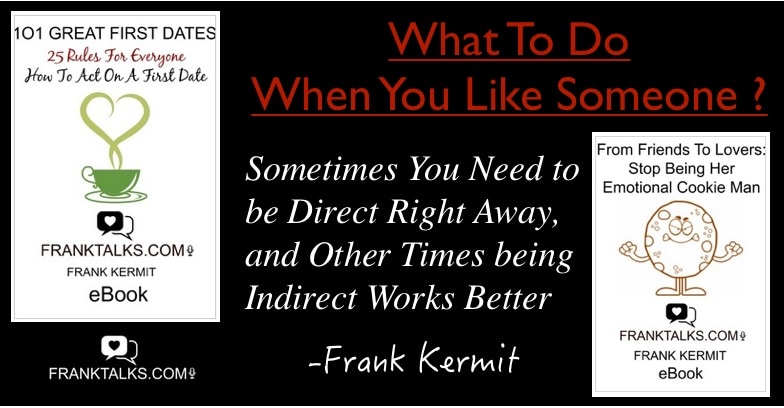
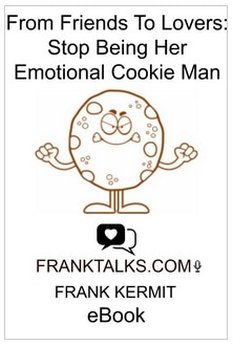
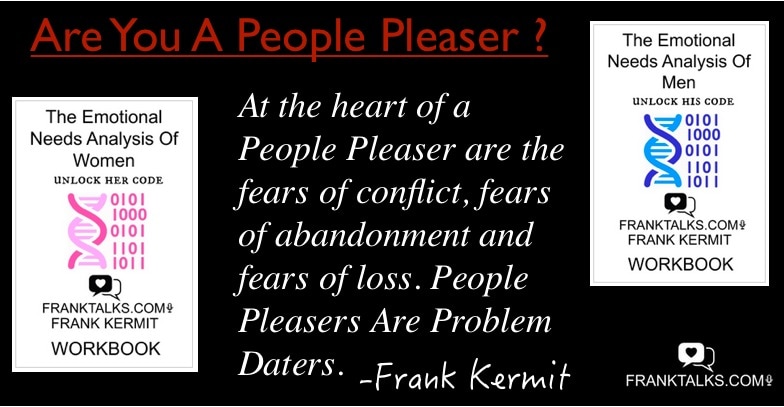
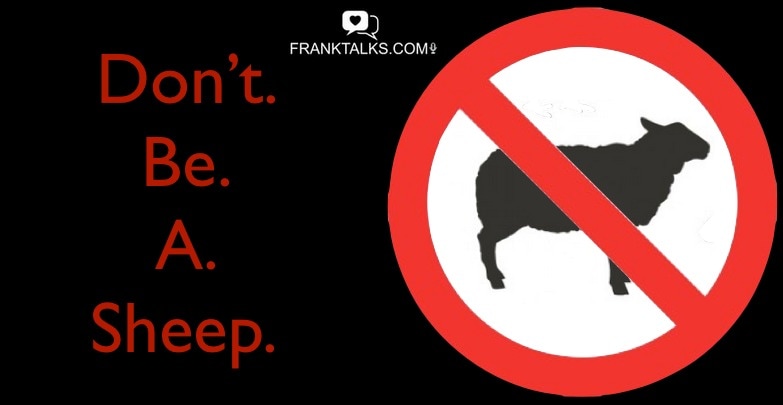
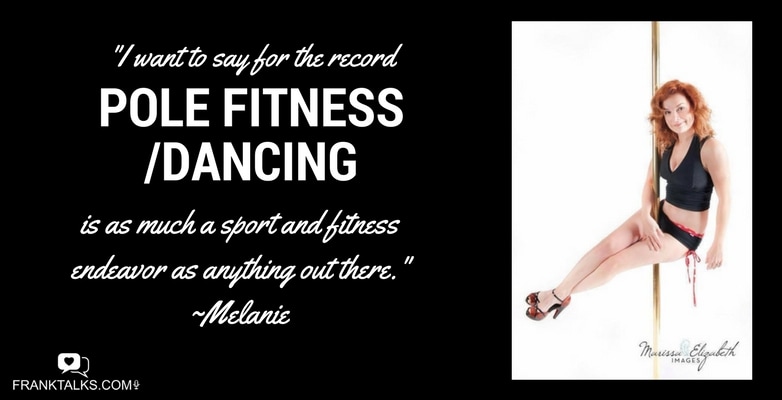


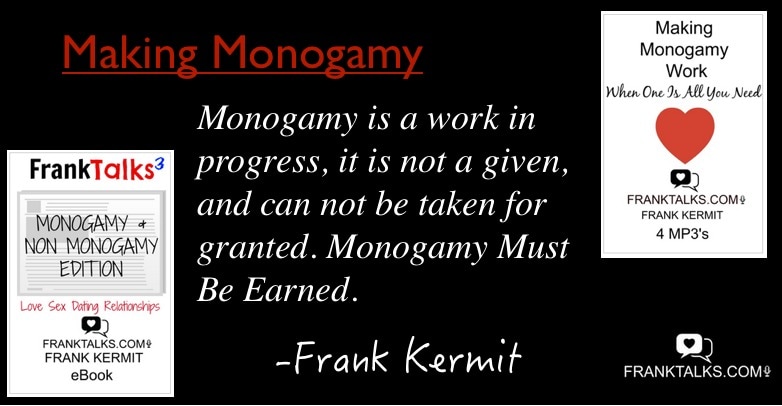
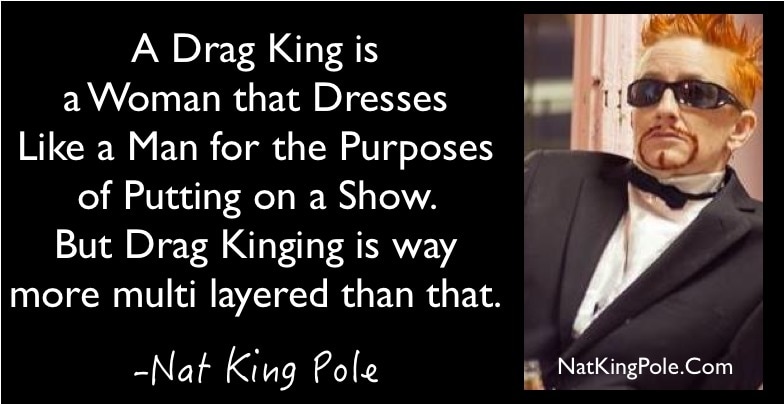
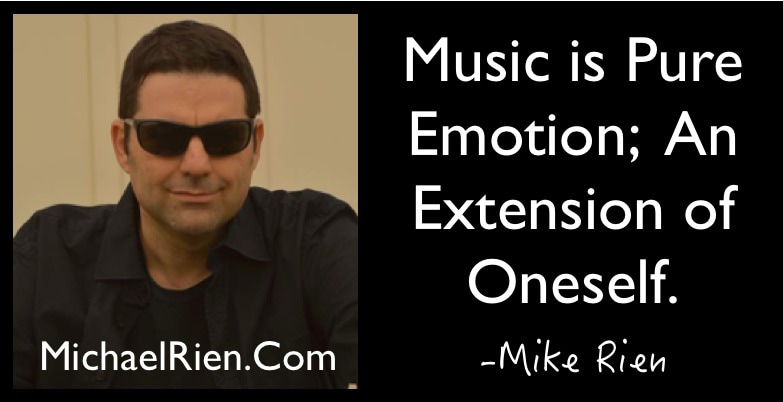
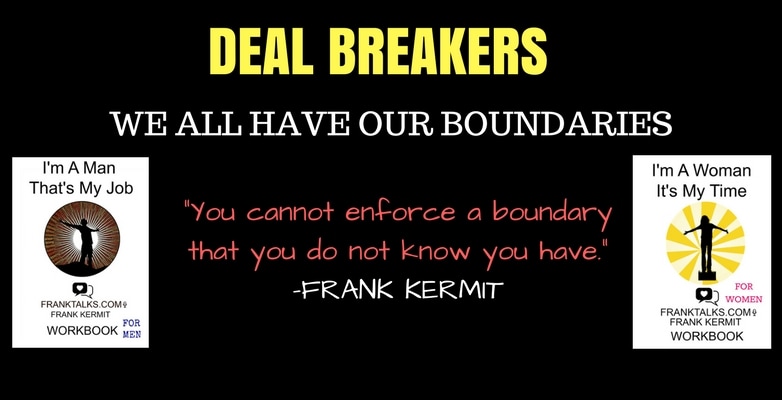
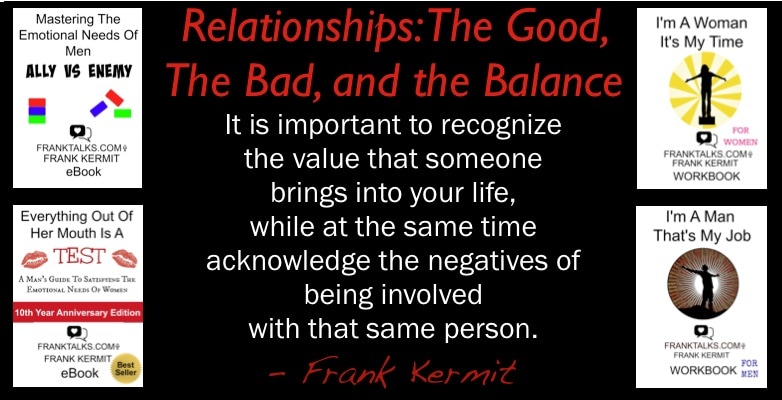
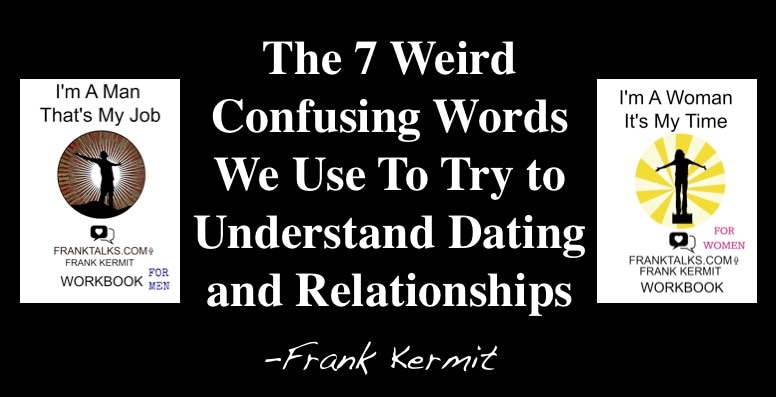
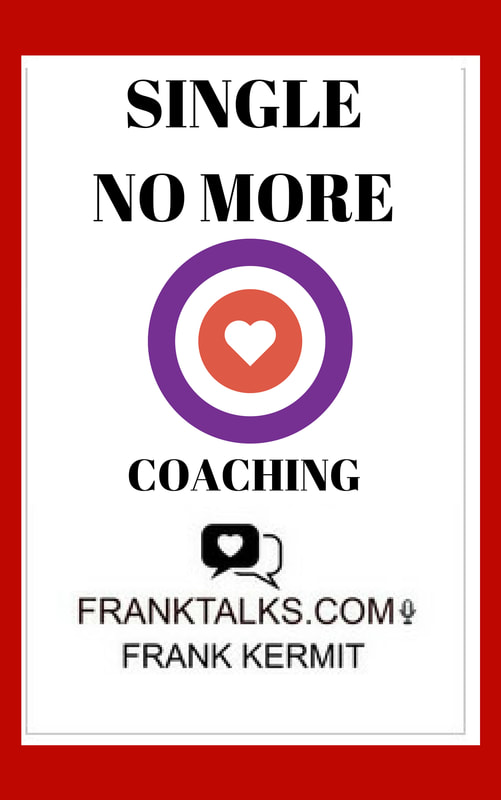
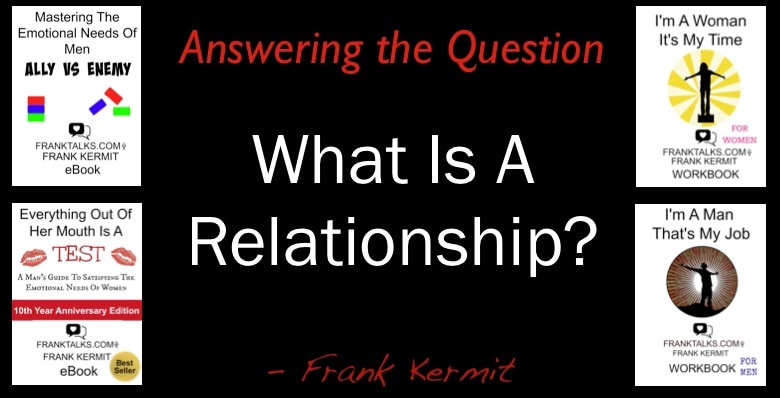
 RSS Feed
RSS Feed


